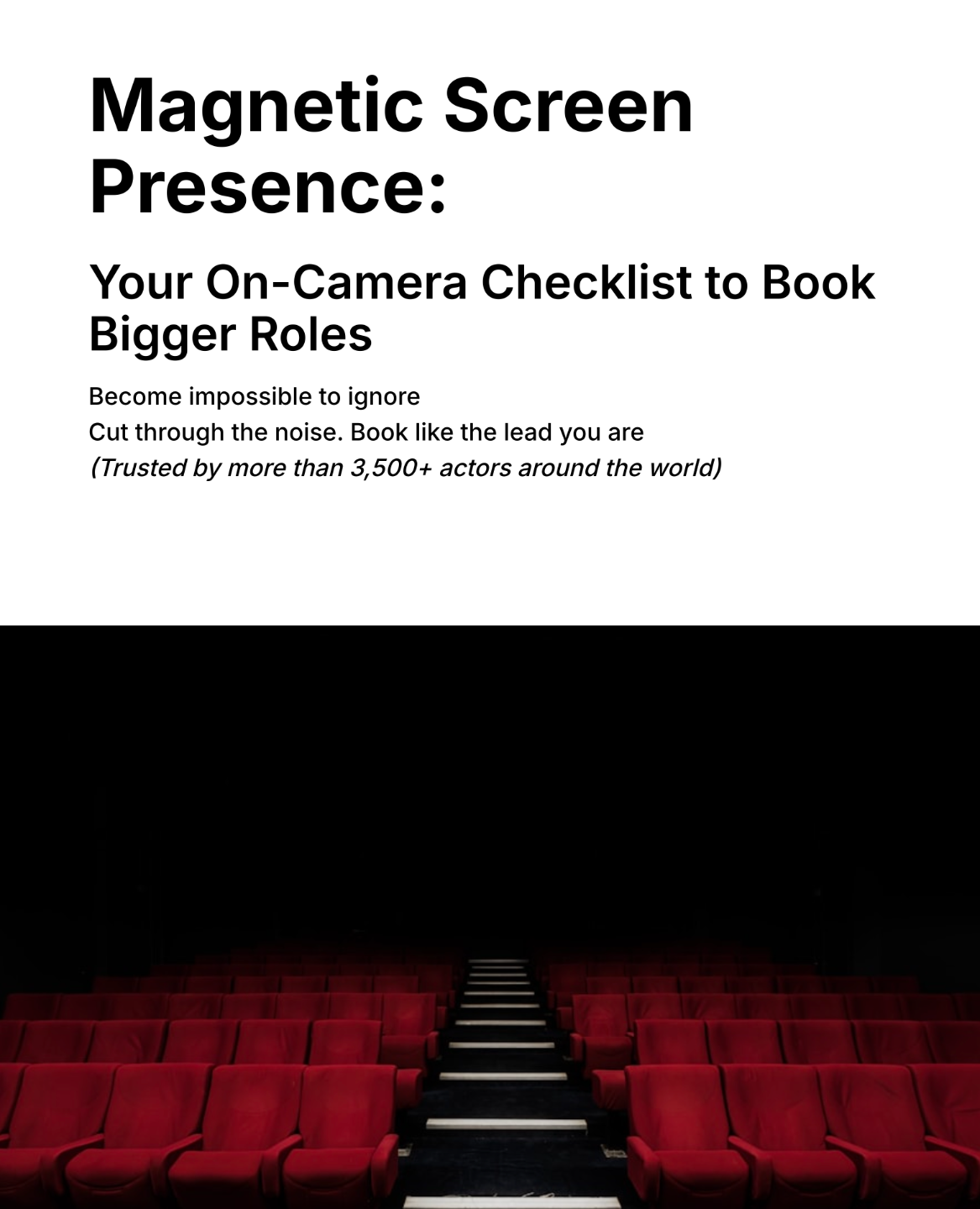How do you choose a Shakespearean Monologue?
Jul 14, 2019How do you choose a Shakespearean Monologue? - Hamlet? As You Like It? Alls Well?
As you are reading your favourite Shakespearean monologues pick the ones that resonate with you! That shake you up a bit!
Choose the Shakespearean monologue that gives you an excited buzzy feeling in the pit of your stomach, the one that makes you pull your head up from your phone or leap on stage or turn on a camera. Choose one that you love, that makes your heart sing.
That's how you know which monologue to choose?
That one! Get the idea?
"Click to tweet this" How do you prepare your Shakespearean Monologue?
Do the work!
Every actor has a different process, but whatever your process is, make sure you do it and do it deeply, really get inside the words, say them over and over, feel them, inhabit them, whisper them, make them your own and you'll be fine.
Don't just learn the lines and wing it, it won’t be your best work. And you'll feel crap and convince no-one. Make a deeper connection, no really, go deeper than that...
Take the time to think through the text. Read the script or watch the movie and get a sense for the whole story.
Notice how does your monologue fit in to the overall story? There's a reason I say this. Because it is sooooo obvious if you don't understand the context of the play by your man Shakespeare. And the people you will be playing too will know...it's their job. So go deeper, make it yours, own it.
My best advice?
Fall in love with the speech...and enjoy the connection you make with the other person. Even if that person is imaginary.
Few points to consider about Shakespeare and his monologues
Timing
A lot of casting people these days are used to seeing auditions on showreels where we perform in extremely short bursts. The ‘clip mentality’ is universal. So check out any parameters set by the room first - are there time restrictions? If so - stick to them - be accurate. IN the US they often want monologues that are under 60 seconds - that's happening more and more over in Europe now.
If they want a comedic monologue give them one. If they want a dramatic monologue...you got the idea :-)
Short, punchy and sweet ALWAYS wins over long and meandering. Brevity really is the soul of wit. Who wrote that?
Context
Always read the whole script. I know, I know but please - just do it.
Give yourself the best chance by coming to terms with the entire role in its full context. If you find a piece you love in a book of monologues from plays, or on a website, in a playbook or a set of dramatic monologue examples, pls go back and read the whole script - it will deepen your research for your character. You will come over better in the room - guaranteed.
They will respect your work and love the fact that you spent time and appreciated the work of the playwright.
And always choose material appropriate to your age range.
The Audience
Who is the audience?
Are you talking directly to them?
If you are, make sure you personalise them? Imagine them? Give them a backstory.
Are you talking to a close friend? a bitter enemy? a neighbourly Judge...who?
Or...
Are you breaking convention and no longer the character, but an actor speaking?
Make sure the monologue kicks into gear with conflict
This means that your chosen character should open the monologue with an active problem he or she is dealing with and trying to solve or work something out, not recalling something, not telling a story.
It can be an external problem they have with another character or an internal struggle. A brilliant example of this is Laertes’ monologue from Hamlet (“Think it no more. / For nature crescent does not grow alone…”)
Show the widest possible range of emotional change
Shakespeare has put boatloads of emotional and intellectual ideas in his monologues. Try to find at least three emotional beats where the character changes their emotion. They may change emotions to further their agenda, or they may change emotions because they’ve said something that causes them to have a revelation. Punctuation can also determine these shifts.
I call them the start beat, the shift beat and the button beat.
If you need more help with this ask for my book "How to get acting work quickly and easily - drop me a line here

Tone
My last and best suggestion is :
Choose a monologue that is both dramatic AND comic—not just comic or tragic.
Show some change in emotion -- keep them laughing -- then make them feel the pain --and THEN laugh. Get the picture?
Choose a piece that is funny, quirky, and gets people to laugh and then ‘stab them in the heart.’ then "crack them up again!"
Hit them with something heartbreaking or moving.
The full 180!
Dramatic Monologues from the Movies
Sometimes that is exactly what is required and here are two very good sites you can plunder monologue examples from for free.
As always when playing Shakespeare or anything else really...
Follow Shakespeares Own Advice To Actors - it's great!
https://www.nickdunning.com/blog/How-do-you-choose-a-Shakespearean-Monologue

Speak the speech, I pray you, as I pronounced it to
you, trippingly on the tongue: but if you mouth it,
as many of your players do, I had as lief the
town-crier spoke my lines.
Nor do not saw the air too much with your hand,
thus, but use all gently;
for in the very torrent, tempest, and, as I may say,
the whirlwind of passion, you must acquire and beget
a temperance that may give it smoothness. O, it
offends me to the soul to hear a fellow tear a passion to tatters
Be not too tame neither, but let your own discretion
be your tutor: suit the action to the word, the
word to the action; with this special observance that you o'erstep not
the modesty of nature: for any thing so overdone is
from the purpose of playing, whose end, both at the
first and now, was and is, to hold, as 'twere, the
mirror up to nature; to show virtue her own feature,
scorn her own image, and the very age and body of
the time his form and pressure.
**Click Below To SUBSCRIBE to my FREE Training Videos for actors:
Topics include:
- How to nail an acting Audition.
- How to write effective emails?
- How to break down a script.
- How to double your confidence
- How to...
Here are a few choice Shakespearean Monologues from Hamlet for you all - enjoy:-)
TRANSCRIPT Of THE VIDEO
So, you want to know how to choose a Shakespeare monologue.
By the end of this video, I'm going to give you three ideas that are going to make that so much easier for you. I'm Nick Dunning. I'm the creator of Total Audition Magician, and the author of How To Get More Acting Work Quickly and Easily. Now,
I've worked a lot at the Royal Shakespeare Company and the Royal National Theatre in the UK, and I have an absolutely passion for Shakespeare.
1. The first thing I want to suggest is this.
Choose a speech, one of the speeches, one of the monologues, one of the Shakespeare monologues, that resonates with you. Choose one that when you pick it up and you read it, you kind of go, "Oh, yeah, this is juicy. This is exciting." It challenges you. It sets some kind of a feeling going on inside of your body.
For example, for me, when I was starting out, I used to choose between, say, the speeches of Macbeth, you know, the one about the dagger, and other speeches. Now, most of my contemporaries were all doing Hamlet, but I didn't quite get Hamlet. He didn't really seem to kind of connect with me. Macbeth, on the other hand, absolutely. I knew what he was doing. I knew what he was after. The idea of killing someone you know, I could relate to that.
That's the first thing you want to do is find that visceral connection. Find the thing that makes you come alive. And when you connect with that language and you connect with that particular Shakespearean monologue, then you know you've found the right one.
2. The second piece of advice I've got for you is this. Some of the language is difficult for us. It's not contemporary language. It really isn't. And so you need to find out what some of the words mean. Don't worry about doing this. It's a perfectly okay thing to do. You know, the best way I use that is I always take what's known as The Arden Edition of Shakespeare. It's the one that the Royal Shakespeare Company uses.
Inside it, on one side, you'll find all the Shakespearean text, and you'll find a word that you don't understand. And then on the other side, it'll tell you a contemporary equivalent. And they really give you a really good in-depth understanding of the Shakespearean dialogue that you want to come up with.
The other thing is, try running it in your head as if you were saying the modern word. And then what you'll find is that when you come back to the original you'll find a new way of connecting with the ancient word, and it will have more meaning, again, more resonance.
Allow the language to fill you up, to feel you, to connect to it. That's when you know you've found the perfect Shakespearean monologue.
3. And the third tip I'm going to give you is this. Actually, I'm going to give you four. I've just thought of another one. This one was passed down from Sir Laurence Olivier to one of the actors that I worked with at the Royal National Theatre company. And he said,
"Whenever you're doing a monologue, take a fishing rod. Imagine you've got a fishing rod in your hand, and you've got this cast now, and you're going to throw the reel, and you're going to throw the hook so that it lands on the end of the monologue. And then as you do, as you speak it, wind it in towards you, so you're always pulling this incredible tight, taught, tense energy inside the actual speech that you're doing."
That is just such a great image, and I use that all the time. And I think you'll find that very helpful. The other one, the bonus one I just thought about, is I worked with a director once, a wonderful director called John Dove, and he told me that whenever you're working on Shakespeare, one of the things you need to do is to pull yourself up to Shakespeare, because the language, the height, the passions, are different.
You need to kind of experience it at a higher level. So, if this has been useful to you, if you love Shakespeare, give me a yes. If you hate Shakespeare and don't understand it, give me a no. Let's talk about this stuff, and please subscribe to my channel.
Cheers guys x Nick
Get exclusive training updates, powerful acting breakthroughs, and actor-friendly discounts—straight to your inbox
No spam. No fluff. Just real tools to help you book more work, faster
Join the list. Stay in the game.
Stay connected with news and updates!
Join Nick's mailing list to grab the latest news and updates from me and my team.
Don't worry, your deets will NEVER be shared.
We hate SPAM. We will never sell your information, for any reason.



